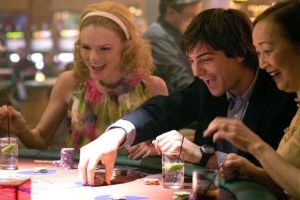
Explore the cultural influence of casino films on global audiences. Discover how these movies shape perceptions on gambling, while emphasizing the importance of responsible gambling practices and resources like Responsible Gambling (RG).
The Cultural Impact of Casino Films on Global Audiences
Casino films have long captivated audiences around the world with their blend of high-stakes drama, glamour, and intrigue. These films not only entertain but also influence cultural perceptions and societal attitudes towards gambling. This article explores the cultural impact of casino films on global audiences, highlighting how these movies shape views on gambling and emphasizing the importance of responsible gambling practices. By referencing Responsible Gambling (RG) as a resource, we provide a balanced perspective that promotes awareness and healthy gambling habits.
The Appeal of Casino Films
Glamour and Escapism:
Casino films often depict a world of luxury and sophistication, offering viewers a form of escapism. The opulent settings, stylish characters, and lavish lifestyles portrayed in these movies contribute to their allure, allowing audiences to experience the excitement of the casino environment vicariously. For more insights on the appeal and dynamics of casino environments, you can visit https://www.liontips.com/.
Dramatic Potential:
Casinos, with their inherent tension and unpredictability, provide an ideal setting for cinematic storytelling. The potential for significant financial gain or loss, combined with the psychological complexities of gambling, creates compelling narratives that resonate with audiences.

Character Development:
The high-stakes nature of gambling provides a fertile ground for character development. Casino films often explore themes of ambition, greed, desperation, and redemption, presenting complex characters whose stories engage and intrigue viewers.
Global Influence of Casino Films
Shaping Perceptions:
Casino films have a significant impact on how gambling is perceived globally. By showcasing both the allure and the pitfalls of gambling, these movies influence public attitudes and beliefs. For instance, films like “Casino Royale” and “Ocean’s Eleven” glamorize the casino experience, while “The Gambler” and “Uncut Gems” highlight the darker aspects of gambling addiction and its consequences.
Cultural Representation:
Casino films often reflect the cultural context in which they are made, portraying the societal norms and values related to gambling. For example, American casino films frequently emphasize individualism and the pursuit of the American Dream, while Asian films like “God of Gamblers” incorporate elements of luck and fate, resonating with cultural beliefs prevalent in those regions.
Economic Impact:
The popularity of casino films can also have economic implications, boosting tourism in locations featured in these movies. Las Vegas, for instance, has benefited from its frequent depiction in films, attracting visitors eager to experience the iconic settings they have seen on screen.
Responsible Gambling Practices
The Importance of Responsible Gambling:
While casino films highlight the excitement and glamour of gambling, it is crucial to remember that gambling should be approached responsibly. Gambling should be seen as a form of entertainment, not a means to achieve financial gain. Understanding the risks and setting limits are essential to maintaining a healthy relationship with gambling.
Promoting Resources for Responsible Gambling:
Organizations like Responsible Gambling (RG) provide valuable resources and support for individuals who gamble. RG offers tools for self-assessment, tips for maintaining control, and information on how to access professional help if needed. These resources are vital in promoting healthy gambling habits and preventing gambling-related harm.
Educational Messages in Films:
Films have the power to educate as well as entertain. By integrating responsible gambling messages and highlighting resources like RG, casino films can play a significant role in raising awareness about the risks of gambling and encouraging responsible behavior. This balanced portrayal can help viewers make informed decisions and promote a healthier relationship with gambling activities.
Case Studies of Cultural Impact
“Casino Royale” (2006):
The James Bond film “Casino Royale” significantly influenced global perceptions of casinos. The movie’s depiction of high-stakes poker games and luxurious casino settings contributed to the glamorization of gambling. However, it also subtly addressed the risks involved, portraying the intense pressure and potential for significant loss.

“The Gambler” (2014):
“The Gambler” provides a stark contrast, focusing on the destructive nature of gambling addiction. The film’s realistic portrayal of compulsive gambling and its impact on personal and professional life serves as a cautionary tale, highlighting the need for responsible gambling practices and support resources.
“God of Gamblers” (1989):
This Hong Kong film became a cultural phenomenon in Asia, blending action, comedy, and drama with themes of luck and skill in gambling. The movie’s success led to numerous sequels and influenced the portrayal of gambling in Asian cinema, reflecting regional cultural attitudes towards fate and fortune.
Conclusion
Casino films have a profound cultural impact on global audiences, shaping perceptions and attitudes towards gambling. These movies offer a mix of glamour, drama, and character-driven narratives that captivate viewers and influence societal views on gambling.
However, it is essential to approach the depiction of gambling in films with a balanced perspective. By promoting responsible gambling practices and highlighting resources like Responsible Gambling (RG), we can ensure that the cultural impact of casino films remains both entertaining and educational. Ultimately, a nuanced portrayal of gambling in cinema can help viewers make informed decisions, fostering a healthier relationship with gambling activities and promoting awareness of the importance of responsible betting habits.

